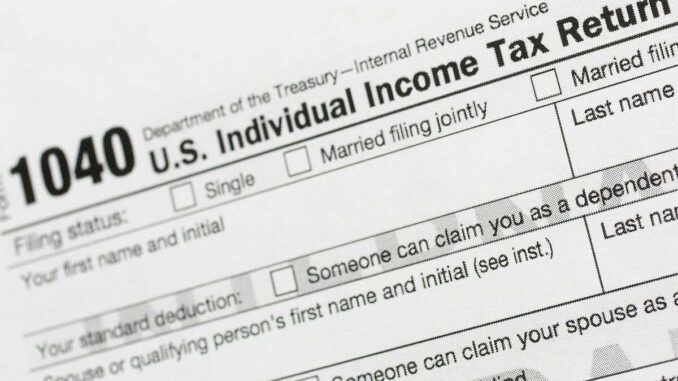
The Internal Revenue Service has further extended its tax filing deadline for Californians affected by the winter storms pounding the state — which means the entire Bay Area and most of the rest of the state have until the fall to file and pay their federal taxes. The agency set Oct. 16 as the new deadline for eligible individuals to file their 2022 federal individual and business tax returns and to make tax payments, the IRS announced Friday. Residents, households and business owners in 51 California counties listed in federal emergency declarations earlier this year are eligible for the extension. All nine Bay Area counties are on the list, along with the rest of the state’s major population centers. The new deadline replaces the May 15 extension granted in early January after deadly “atmospheric river” storms devastated large swaths of the state. The original deadline was April 18. California officials on Thursday announced that they had followed suit and extended to Oct. 16 the deadline for state tax returns and payments. They made the same move as when the IRS announced its first deadline extension earlier this year. Here are key details about the new federal extension: What is the IRS extension, and what does it affect? • The new extension postpones until Oct. 16 most tax filing and payment deadlines for individual and business returns for the 2022 calendar year.
For eligible taxpayers, the Oct. 16 deadline applies to:
• Individual income tax returns, originally due on April 18; various business returns, normally due March 15 and April 18; and returns of tax-exempt organizations, normally due May 15.
• Contributions to IRAs and health savings accounts.
• Returns and payment of any taxes due by farmers who do not make estimated tax payments and normally file their returns by March 1.
• Estimated tax payment for the fourth quarter of 2022, originally due on Jan. 17, 2023. Taxpayers can skip that payment and include it with the 2022 return they file on or before Oct. 16.
• 2023 estimated tax payments, normally due on April 18, June 15 and Sept. 15.
• Quarterly payroll and excise tax returns normally due on Jan. 31, April 30 and July 31.
How do I know if I qualify for the IRS extension?
Everyone who lives in or has a business in one of the 51 California counties listed by the IRS qualifies for the deadline extension.
The counties are: Alameda, Alpine, Amador, Butte, Calaveras, Colusa, Contra Costa, Del Norte, El Dorado, Fresno, Glenn, Humboldt, Inyo, Kings, Lake, Los Angeles, Madera, Marin, Mariposa, Mendocino, Merced, Mono, Monterey, Napa, Orange, Nevada, Placer, Riverside, Sacramento, San Benito, San Bernardino, San Diego, San Francisco, San Joaquin, San Luis Obispo, San Mateo, Santa Barbara, Santa Clara, Santa Cruz, Siskiyou, Solano, Sonoma, Stanislaus, Sutter, Tehama, Trinity, Tulare, Tuolumne, Ventura, Yolo, and Yuba.
Do I have to request the extension?
If your address on record with the IRS is within the disaster area, you do not have to make a request — the extension is automatic.
If you qualify but receive a notice of late filing or late payment penalty, the IRS says you should call the number listed on the notice to have the penalty removed.
Does the extension apply to my California state tax return as well?
Yes. After the IRS announced its deadline change, the California Franchise Tax Board followed suit by extending the deadline for individuals and businesses to file state tax returns and make payments to Oct. 16.
The extension applies to tax deadlines falling between Jan. 8 and Oct. 15. It includes:
• Individuals whose tax returns and payments are due on April 18.
• Quarterly estimated tax payments due Jan. 17, April 18, June 15 and September 15.
• Business entities whose tax returns are normally due on March 15 and April 18.
• Elective tax payments for pass-through-entities due on June 15.
• Taxpayers who suffer an uninsured or unreimbursed loss in a federally declared disaster can take a deduction for it on their federal and state tax returns.



Be the first to comment